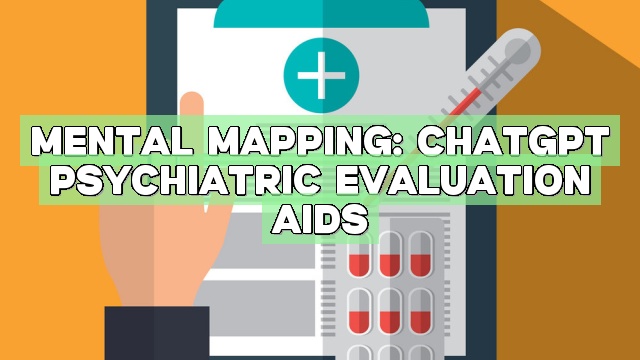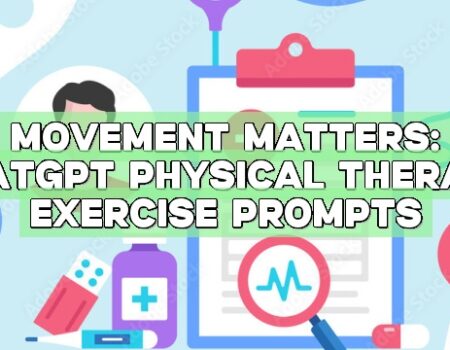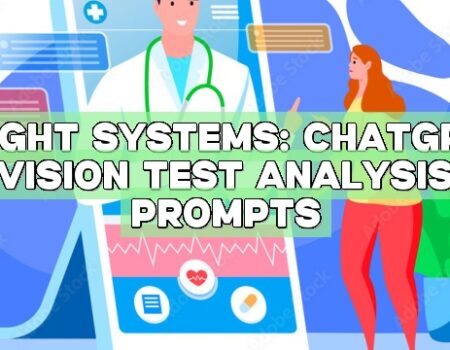ChatGPT, an artificial intelligence language model developed by OpenAI, has the potential to contribute to the field of mental health. However, its clinical abilities in terms of suicide prevention, a significant mental health concern, have not been demonstrated yet. A study aimed to address this knowledge gap by comparing ChatGPT’s assessments of mental health indicators to those of mental health professionals in a hypothetical case study focusing on suicide risk assessment. The results indicated that ChatGPT rated the risk of suicide attempts lower than mental health professionals in all conditions and rated mental resilience lower than the norms in most conditions. This suggests that relying on ChatGPT for evaluating suicidal risk may result in an inaccurate assessment that underestimates the actual suicide risk.
Key Takeaways:
- ChatGPT is an artificial intelligence language model with potential applications in mental healthcare.
- Current research indicates that ChatGPT’s abilities in terms of suicide prevention need improvement.
- The use of ChatGPT for suicidal risk evaluations may result in inaccurate assessments.
The Rise of ChatGPT in Language Processing
ChatGPT, based on GPT language model technology, has gained 100 million users since its launch, making it the fastest-growing consumer application to date. It is a highly sophisticated chatbot that can handle text-based requests ranging from simple queries to more advanced tasks. Its ability to comprehend and interpret user requests and generate appropriate responses in natural human language makes it a significant breakthrough in natural language processing and artificial intelligence. While most studies have focused on its use in academia, its applications in applied psychology, particularly in the field of mental health, have been limited.
Suicide is a major health problem globally, with a high prevalence of psychiatric diseases among individuals who attempt or commit suicide. Early identification of individuals at risk of suicide is important for implementing appropriate crisis management and intervention strategies. Gatekeepers, such as teachers, policymakers, and military commanders, are trained to identify suicide risk factors and intervene accordingly. ChatGPT has the potential to support gatekeepers in their decision-making processes and improve the effectiveness of formal assessment tools and clinical evaluations in predicting suicide behavior. However, current methods often have insufficient predictive capabilities.
In a research study, the limitations of ChatGPT in evaluating suicide risk and identifying associated factors were investigated. The study examined the role of perceived burdensomeness and thwarted belongingness, two core dimensions of the Interpersonal Theory of Suicide (ITS), in therapists’ perceptions and evaluations of suicide ideation and behavior. The results showed that ChatGPT underestimated the risk of suicide attempts compared to mental health professionals and rated mental resilience lower than the norms in most conditions.
ChatGPT has several benefits in mental healthcare. It can reduce the stigma associated with mental health conditions by allowing patients to seek help anonymously. It provides immediate assistance to patients, preventing crises that may arise from waiting for weeks or months to see a mental health professional. It can also help reduce the workload of mental health professionals by providing help and support without the need for direct consultation.
Cost-effectiveness is another advantage of ChatGPT, as it provides an affordable alternative to traditional mental health treatment. Machine learning is used to improve its performance over time, making it more accurate in diagnoses and effective in therapy. However, there are concerns that chatbots may not provide the same level of care as human therapists due to the lack of empathy and emotional intelligence. Complex mental health conditions may also pose challenges for chatbots designed for simple diagnoses and therapy.
Despite these concerns, ChatGPT has the potential to be a valuable tool in mental healthcare. It can provide immediate assistance, reduce stigma, and make mental healthcare more accessible. It is not intended to replace mental health professionals but can serve as a preliminary diagnostic tool and provide guidance on managing mental health conditions. It is important for users to seek a comprehensive assessment from a mental health professional for a definitive diagnosis.
The need for accurate and current data is a major challenge in adopting ChatGPT in healthcare. Access to reliable and up-to-date medical data is crucial for providing trustworthy suggestions and treatment options. Privacy and security issues should also be considered when utilizing ChatGPT in the healthcare industry.
Addressing Suicide Risk Assessment with ChatGPT
ChatGPT, an artificial intelligence language model developed by OpenAI, has the potential to contribute to the field of mental health. However, its clinical abilities in terms of suicide prevention, a significant mental health concern, have not been demonstrated yet. A study aimed to address this knowledge gap by comparing ChatGPT’s assessments of mental health indicators to those of mental health professionals in a hypothetical case study focusing on suicide risk assessment. The results indicated that ChatGPT rated the risk of suicide attempts lower than mental health professionals in all conditions and rated mental resilience lower than the norms in most conditions. This suggests that relying on ChatGPT for evaluating suicidal risk may result in an inaccurate assessment that underestimates the actual suicide risk.
Suicide is a major health problem globally, with a high prevalence of psychiatric diseases among individuals who attempt or commit suicide. Early identification of individuals at risk of suicide is important for implementing appropriate crisis management and intervention strategies. Gatekeepers, such as teachers, policymakers, and military commanders, are trained to identify suicide risk factors and intervene accordingly. ChatGPT has the potential to support gatekeepers in their decision-making processes and improve the effectiveness of formal assessment tools and clinical evaluations in predicting suicide behavior. However, current methods often have insufficient predictive capabilities.
In a research study, the limitations of ChatGPT in evaluating suicide risk and identifying associated factors were investigated. The study examined the role of perceived burdensomeness and thwarted belongingness, two core dimensions of the Interpersonal Theory of Suicide (ITS), in therapists’ perceptions and evaluations of suicide ideation and behavior. The results showed that ChatGPT underestimated the risk of suicide attempts compared to mental health professionals and rated mental resilience lower than the norms in most conditions.
Although ChatGPT may not yet be suitable for suicide risk assessments, it has the potential to support gatekeepers and improve the effectiveness of formal assessment tools in the future. It is important to note that ChatGPT is not intended to replace mental health professionals but can serve as a preliminary diagnostic tool and provide guidance on managing mental health conditions. It is crucial for users to seek a comprehensive assessment from a mental health professional for a definitive diagnosis.
Gatekeeping with ChatGPT: Supporting Suicide Risk Identification
Suicide is a major health problem globally, with a high prevalence of psychiatric diseases among individuals who attempt or commit suicide. Early identification of individuals at risk of suicide is crucial for implementing appropriate crisis management and intervention strategies. Gatekeepers, such as teachers, policymakers, and military commanders, are trained to identify suicide risk factors and intervene accordingly.
ChatGPT has the potential to support gatekeepers in their decision-making processes and improve the effectiveness of formal assessment tools and clinical evaluations in predicting suicide behavior. However, current methods often have insufficient predictive capabilities.
In a research study, the limitations of ChatGPT in evaluating suicide risk and identifying associated factors were investigated. The study examined the role of perceived burdensomeness and thwarted belongingness, two core dimensions of the Interpersonal Theory of Suicide (ITS), in therapists’ perceptions and evaluations of suicide ideation and behavior. The results showed that ChatGPT underestimated the risk of suicide attempts compared to mental health professionals and rated mental resilience lower than the norms in most conditions.
Despite these limitations, ChatGPT can be a useful tool for gatekeepers in identifying potential suicide risk factors. Its ability to process a large amount of data and identify patterns can help gatekeepers in formal assessment tools and clinical evaluations. It can also provide guidance to individuals seeking immediate assistance.
It is important to note that ChatGPT is not intended to replace mental health professionals. Gatekeepers should still seek a comprehensive assessment from a mental health professional for a definitive diagnosis. Furthermore, privacy and security issues should also be considered when utilizing ChatGPT in the healthcare industry. Access to reliable and up-to-date medical data is crucial for providing trustworthy suggestions and treatment options.
Limitations in ChatGPT’s Suicide Risk Assessment
In a research study, the limitations of ChatGPT in evaluating suicide risk and identifying associated factors were investigated. The study examined the role of perceived burdensomeness and thwarted belongingness, two core dimensions of the Interpersonal Theory of Suicide (ITS), in therapists’ perceptions and evaluations of suicide ideation and behavior. The results showed that ChatGPT underestimated the risk of suicide attempts compared to mental health professionals and rated mental resilience lower than the norms in most conditions.
While ChatGPT has the potential to support gatekeepers and improve the effectiveness of formal assessment tools in predicting suicide behavior, relying on it solely for evaluating suicidal risk may result in an inaccurate assessment that underestimates actual suicide risk. Suicide prevention is a critical concern, and it is essential to use multiple approaches and resources to identify individuals at risk of suicide and provide appropriate interventions and management strategies.
Benefits of ChatGPT in Mental Healthcare
ChatGPT has several benefits in mental healthcare. For instance, it can help reduce the stigma associated with mental health conditions. Patients can seek help anonymously without having to worry about being judged or stigmatized. Additionally, it provides immediate assistance to patients, which can help prevent crises and decrease the burden on mental health services.
ChatGPT can also help reduce the workload of mental health professionals by providing guidance and support without the need for direct consultation. This can help increase efficiency and free up time for mental health professionals to focus on more complex cases that require their attention.
Cost-effectiveness is another advantage of ChatGPT. It provides an affordable alternative to traditional mental health treatment, making it more accessible to patients who may not have access to other forms of mental healthcare.
Machine learning is used to improve its performance over time, making it more accurate in diagnoses and effective in therapy. However, it is important to note that ChatGPT is not intended to replace mental health professionals but serve as a preliminary diagnostic tool.
Moreover, ChatGPT can help individuals who may not otherwise seek treatment due to the financial cost or stigma associated with mental health conditions. By providing immediate assistance and support, ChatGPT can help individuals manage their mental health conditions before they become a crisis.
Concerns and Challenges of ChatGPT in Mental Healthcare
Cost-effectiveness is another advantage of ChatGPT, as it provides an affordable alternative to traditional mental health treatment. However, concerns have been raised regarding the lack of empathy and emotional intelligence exhibited by chatbots like ChatGPT. These concerns are particularly relevant to the diagnosis and treatment of complex mental health conditions.
One of the main limitations of using ChatGPT in mental health is its inability to effectively interpret and respond to emotional cues. Patients with complex mental health conditions may require more than just a simple diagnosis or therapy, but also a compassionate ear to listen and understand their emotions and experiences. Chatbots lack the emotional intelligence to provide compassionate care, which could prevent patients from seeking the help they need.
Additionally, complex mental health conditions often require more than just a preliminary diagnosis or therapy. Patients may require specialized care that is only available through trained mental health professionals. In these cases, ChatGPT should not be used as a replacement for traditional mental health treatment, but rather as a complement or additional resource.
While ChatGPT can provide immediate assistance to patients in crisis, it may not be accurate in diagnosing and treating complex mental health conditions. Mental health professionals have specialized training and experience in diagnosing and treating mental health disorders that chatbots lack. ChatGPT should not be relied upon as the sole source of mental healthcare, and users should still seek a comprehensive assessment from a mental health professional for a definitive diagnosis.
As the field of mental health continues to evolve, more research is needed to determine the effectiveness of chatbots like ChatGPT. While they have the potential to improve access to mental health services, it is important to address the concerns and challenges associated with their use in mental healthcare. Ensuring accurate data, privacy and security considerations, and adherence to medical ethics are critical in utilizing ChatGPT in a responsible and effective manner.
Utilizing ChatGPT in Mental Healthcare: Considerations
The need for accurate and current data is a major challenge in adopting ChatGPT in healthcare. Access to reliable and up-to-date medical data is crucial for providing trustworthy suggestions and treatment options. Privacy and security issues should also be considered when utilizing ChatGPT in the healthcare industry.
Medical ethics also plays a role in the use of ChatGPT in mental healthcare. The ethical principles of beneficence, non-maleficence, autonomy, and justice must be adhered to in the development and deployment of chatbots in mental healthcare. ChatGPT should not replace human professionals in providing comprehensive mental health assessments and diagnoses.
There is also a need to address the limitations of ChatGPT in the context of complex mental health conditions. Chatbots lack the emotional intelligence and empathy needed to work with individuals with complex mental health issues and may require more human intervention and support. Further research is needed to explore the effectiveness of ChatGPT in managing complex mental health conditions.
Another important consideration is the importance of clear communication between ChatGPT and users. Chatbots should be transparent about their limitations, and users should be informed about the nature of the technology and the types of questions they can answer. Proper training of mental health professionals and gatekeepers in the use of ChatGPT is essential to ensure its safe and effective use.
Conclusion: The Potential of ChatGPT in Mental Health
In conclusion, ChatGPT has the potential to improve mental health treatment and diagnosis. Its conversational AI capabilities make it useful for chatbots, virtual assistants, and other applications. Although limitations exist in terms of medical ethics, data interpretation, accountability, and privacy, ChatGPT can be utilized for various Natural Language Processing activities and specialized tasks. As the mental health industry continues to evolve, it is likely that more tools like ChatGPT will emerge to provide support and improve access to mental health services for individuals.
FAQ
Q: Can ChatGPT be used for psychiatric evaluation?
A: ChatGPT has the potential to contribute to psychiatric evaluation, but its clinical abilities in terms of suicide prevention have not been demonstrated yet.
Q: How accurate is ChatGPT in assessing suicide risk?
A: A study comparing ChatGPT’s assessments to those of mental health professionals indicated that ChatGPT rated the risk of suicide attempts lower and mental resilience lower than the norms, suggesting potential inaccuracies in its assessment.
Q: Can ChatGPT support gatekeepers in identifying suicide risk factors?
A: ChatGPT has the potential to support gatekeepers in their decision-making processes and improve the effectiveness of formal assessment tools and clinical evaluations in predicting suicide behavior.
Q: What are the benefits of using ChatGPT in mental healthcare?
A: ChatGPT can reduce the stigma associated with mental health conditions, provide immediate assistance to patients, and help reduce the workload of mental health professionals.
Q: Can ChatGPT replace mental health professionals?
A: No, ChatGPT is not intended to replace mental health professionals. It can serve as a preliminary diagnostic tool and provide guidance, but users should seek a comprehensive assessment from a mental health professional for a definitive diagnosis.
Q: What are the concerns and challenges of using ChatGPT in mental healthcare?
A: Concerns include the lack of empathy and emotional intelligence in chatbots and the challenges they may face in diagnosing and treating complex mental health conditions.
Q: What considerations should be taken when utilizing ChatGPT in mental healthcare?
A: Considerations include the need for accurate and current data, privacy and security issues, and adherence to medical ethics.









